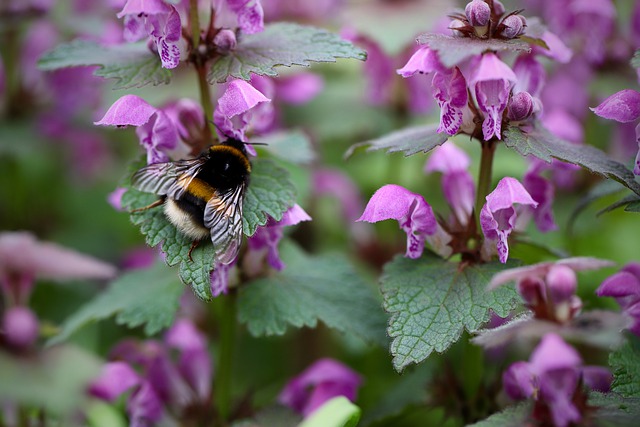Pollination is a crucial process for the growth and reproduction of vegetable crops. Without proper pollination, plants cannot produce fruits, and the quality of the vegetables may suffer. Pollination is the transfer of pollen from the male reproductive organ (stamen) to the female reproductive organ (pistil) of a flower. This process is necessary for the fertilization of the ovules, which leads to the formation of seeds and fruit. In this article, we will discuss how improper pollination can affect your vegetable crops.
Poor Fruit Development:
When flowers are not pollinated properly, the result is poor fruit development. This means that the fruits will be small, misshapen, and may not mature properly. Additionally, some fruits may fall off before they are fully developed. This can be a major problem for farmers and gardeners, as it leads to reduced yields and a lower quality of produce.
Reduced Yield:
Improper pollination can also lead to reduced yields. Plants that are not properly pollinated may produce fewer fruits or vegetables than those that are pollinated correctly. This can be due to a lack of fertilization or the formation of fewer seeds. In either case, the result is a lower yield of vegetables, which can be a major problem for farmers and gardeners.
Uneven Maturity:
When pollination is not consistent, the result can be uneven maturity of fruits or vegetables. This means that some fruits or vegetables will be ready for harvest, while others will not be mature enough. This can be a problem for farmers and gardeners who need to harvest their crops at a specific time. Additionally, uneven maturity can affect the quality of the produce, as some fruits or vegetables may be overripe while others are underripe.
Increased Susceptibility to Diseases:
Plants that are not properly pollinated are more susceptible to diseases and pests. This is because the plant is weaker and less able to defend itself against these threats. Additionally, when fruits or vegetables are not pollinated properly, they may not develop a protective layer that can help to prevent diseases and pests from entering the plant.
Decreased Nutritional Value:
Improper pollination can also lead to a decrease in the nutritional value of vegetables. This is because the fruits or vegetables may not develop as many seeds, which are often a good source of nutrients. Additionally, the size and shape of the fruits or vegetables may be affected, which can impact their nutrient content.
Solutions to Problems Caused by Improper Pollination in Vegetable Crops

Proper pollination is essential for healthy vegetable crops. As we discussed in the previous article, improper pollination can lead to poor fruit development, reduced yields, uneven maturity, increased susceptibility to diseases, and decreased nutritional value of vegetables. In this article, we will discuss some solutions to these problems and how to get rid of them.
Hand Pollination:
One solution to improper pollination is to hand-pollinate the plants. Hand pollination is a simple process that involves transferring pollen from the male reproductive organ to the female reproductive organ using a small brush or cotton swab. This ensures that every flower is pollinated, which leads to a higher yield of fruits and vegetables.
Attract Pollinators:
Another solution to improper pollination is to attract pollinators to your garden. Bees, butterflies, and other insects are natural pollinators and can significantly increase the yield of your vegetable crops. You can attract these pollinators by planting flowers, using a variety of colors, shapes, and sizes. Additionally, you can create a pollinator-friendly environment by providing shelter and water sources.
Use Companion Planting:
Companion planting is a gardening technique that involves planting different plants together that have a mutually beneficial relationship. For example, planting marigolds near your vegetable plants can attract pollinators and deter pests. This can help to ensure proper pollination and reduce the risk of diseases and pests.
Provide Proper Care:
Proper care and maintenance of your vegetable plants can also help to ensure proper pollination. This includes regular watering, fertilizing, and pruning. Additionally, removing dead or diseased flowers can help to prevent the spread of diseases and promote healthy pollination.
Avoid Using Pesticides:
Pesticides can harm pollinators and reduce the number of beneficial insects in your garden. Instead of using pesticides, you can use natural remedies such as neem oil or soap sprays to deter pests. Additionally, you can use physical barriers such as row covers or netting to prevent pests from accessing your vegetable plants.
Plant at the Right Time:
Planting at the right time is crucial for proper pollination. For example, planting too early or too late in the season can result in poor pollination and reduced yields. Additionally, planting different varieties of vegetables with staggered maturity dates can help to ensure a consistent supply of produce throughout the growing season.
Use High-Quality Seeds:
Using high-quality seeds can also help to ensure proper pollination and healthy vegetable crops. Look for seeds that are certified and free of diseases or pests. Additionally, choose varieties that are known to be pollinator-friendly and suitable for your growing conditions.
Conclusion:
In conclusion, proper pollination is essential for healthy vegetable crops. Without proper pollination, plants may produce poor quality fruits, suffer from reduced yields, and become more susceptible to diseases and pests. Additionally, improper pollination can lead to uneven maturity and a decrease in the nutritional value of vegetables. By using solutions such as hand pollination, attracting pollinators, companion planting, providing proper care, avoiding pesticides, planting at the right time, and using high-quality seeds, you can help to ensure proper pollination and a bountiful harvest of healthy and nutritious vegetables.
